The Future of Training in the Present
Szöveg: Béla Révész | 2017. június 23. 9:00The 1st International and National E-learning Conference was held in Stefánia Palace – Army Cultural Centre, Budapest on 19–20 June. Among other things, the participants coming from several NATO member countries shared their experience about distance education as a new element of the training system.
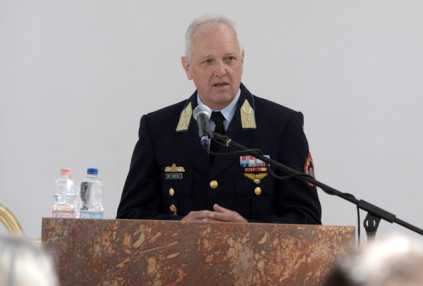
The explosive growth in the use of e-learning – a form of software-aided digital online distance learning – occurred mainly in civil higher education and language schools, but its opportunities were soon perceived in the military field as well. The Hungarian Defence Forces General Staff Training and Education Directorate organized a symposium on the present state of the method and its future potentials in Stefánia Palace, Budapest in mid-June. On the opening day of the conference, Deputy Chief of Defence Lt.-Gen. Dr. Zoltán Orosz welcomed the military and civilian presenters and students coming from Belgium, Finland, the Netherlands, Poland, Sweden and Serbia as well as the Hungarian participants.
Lt.-Gen. Zoltán Orosz pointed out that “(Today) learning to expand our knowledge and to train ourselves does not end with the acquisition of the first profession or the first degree. NATO and the European Union have set the goal and support the process of lifelong learning, including e-learning, so that the community, as far as global competition is concerned, can have more and more skilled people capable of adapting to changes. […] In the long term, high-level intellectual capital is one of the basic pillars of military success. (Our aim is) to establish a distance learning capability in the Hungarian Defence Forces as a training form, a distance education system supporting the education and training system of the Hungarian Defence Forces", the lieutenant-general said.
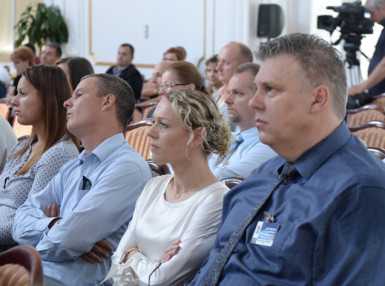
The Deputy Chief of Defence explained that e-learning will also have a significant role in training volunteer reserve officers and reserve NCOs. “In order to recruit and retain staff, and reduce the number of fluctuation, it is also essential to be able to apply new forms of training. The defence sphere must also keep up with the civil sphere in the field of education", Lt.-Gen. Zoltán Orosz said, adding that “during the operation of the distance learning system, you can ensure high educational and training level regardless of location and time, as well as cost reduction […] e-learning can therefore help us strengthen our protection against future challenges".
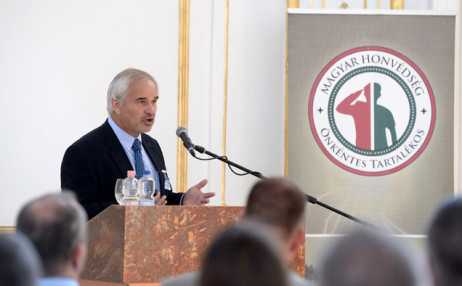
NATO e-Learning Programme Manager Paul Thurkettle was the keynote speaker of the symposium. The expert emphasized that for a long time, the NATO military community accepted the fact that NATO was stagnant, and so they did things as they had done during the Cold War, and thus it took them long to step outside their comfort zone. The new challenges, however, changed everything, including the education and training methods. In the early 2000s, they started integrating a new element – advanced distributed learning (ADL) – into the training system, which thoroughly reshaped the education technologies within the organization.
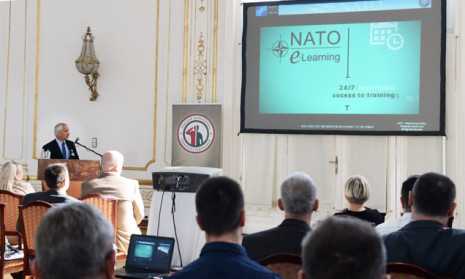
The experts in NATO started looking into the advantages of e-learning-based education. “E-learning is cost-effective, it’s efficient, and using it you can reduce training time sometimes as much as 50 per cent. Everyone kept saying about the millennium generations that all they can do is to do stuff online…and we had to (provide military training) to the new generation that’s coming in", Paul Thurkettle said. Mentioning a concrete example, the programme manager pointed out that the experts at NATO Allied Command Transformation developed a course, a software package for national training systems that covers all levels of training, from the basic recruit to the personnel learning how to do something when they arrive in theatre, so that they can get more used to the environment.
During the two days, besides attending professional programs, the participants of the conference also had time for sightseeing in Budapest, among others to visit the Parliament building.
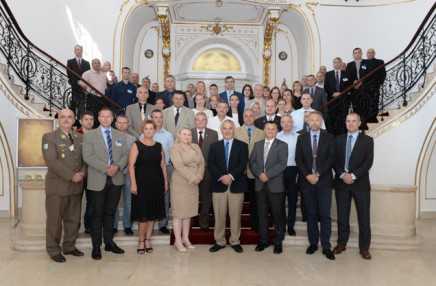
Photo: Mária Krasznai-Nehrebeczky